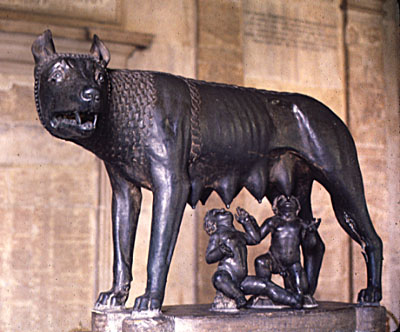wolf spirit
I've told you a hundred times: don't run away just anywhere.
If run you must, then run to me right here.
If ever the fear of the wolf enters into your mind,
Don't run off to the wild, my love, run to your own kind.
#958: From Rumi's Kolliyaat-e Shams-e Tabrizi
Search words: win, run
A competition is approaching and a motivation to win has arisen. Tension will mount in the final run to the finals. This is a crucial time for my son and therefore also for me. He is the one competing. I envy him that fun, that thrill of competition.
Today, Rumi invites me, almost commands me, to come to him. I can easily identify as the one he addresses. Did he mean to address his verses to any single soul "out there"? Is that the abstract entity to whom I address this blog? I guess it must be when I write publicly in a place where anyone can come.
This imagery of a running wolf, of course, brings to mind that brilliant book by Clarissa Pinkola Estés, Women Who Run with the Wolves. It is a rich book and it's been a long time since I read it but it did inspire me to seek out my true nature and leave behind a goody goody two shoes mentality.
It may seem quite weird and improbable, but I hear a call here from Rumi to follow that dream of wildness, not by running out into "nature", into a literal garden or park or wilderness, but by running to nature-lovers of Rumi's sort, wild people like him. I won't find my wild self "out there", nor inside Rumi's own words. My wildest self is my most interior, private and secret self. I find it most clearly when I write for myself alone.
Wolves run in packs, however. They hunt collectively. It is really my cat side that insists on alone-ness. My wolf side likes to run to others of like kind. Hence this page that invites other wild wolves to visit and share the spirit.
Recalling that this verse was written during Rumi's mourning of Shams' disappearance, it must - more realistically - refer to the contrast in the two men's lifestyles. Rumi was a solid citizen, well entrenched inside his society. Shams was a wandering dervish with no home inside any establishment walls. Until he met Rumi. Because we all have a wild self and a stable self, there is never any shortage of other people we can run to in order to share either spirit. At one stage Shams did run off but then returned and Rumi is here recollecting that experience and asking his own wild self, his Shams self, to stay by him. He is assuring his own wild self that he will honour and safeguard him, nurture him and get to know him better and better every day.
And so I hope also to do here every day. By nurturing and being nurtured by one's wild self one can build up human cultural achievements that become those stable constructs in which we can more safely live our lives. Even Rome was built through the nurturance of wild wolf milk.

Etruscan she-wolf, 5th century BCE @ vroma.org
with Romulus and Remus added in Renaissance
with Romulus and Remus added in Renaissance



0 Comments:
Post a Comment
<< Home